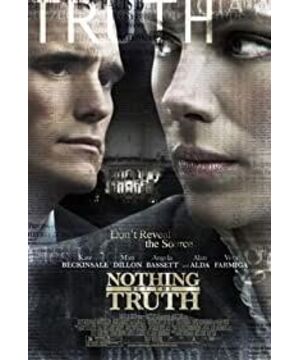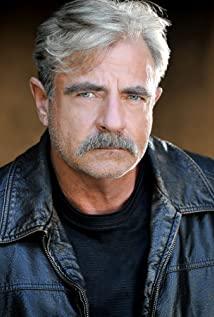(1) What is the First Amendment to the U.S. Constitution? The
"First Amendment" is always mentioned in movies, so what exactly is the "First Amendment"? I checked the Internet and found that the so-called "First Amendment" actually has only one sentence: "Congress shall not enact laws on the following matters: establish the state religion or prohibit freedom of religion; deprive freedom of speech or freedom of the press; or deprive the people of peaceful assembly and the government. Petition for the right to redress grievances."
Congress shall make no law respecting an establishment of religion, or prohibit the free exercise thereof; or abridging the freedom of speech, or of the press; or the right of the people peaceably to assemble, and to petition the Government for a redress of grievances.
In 1787, shortly after the establishment of the Commonwealth of America, it began to draft the U.S. Constitution and submitted it to the state legislatures for approval. Some people have raised doubts that the constitution cannot guarantee the basic rights of the people (many people are skeptical and even hostile. None of the seven articles published at the time are human rights clauses that protect the personal freedom and safety of citizens). In response, the US Federalists who supported the draft constitution assured the American people that the bill of rights would be added to the constitution during the first session of the Congress. At the same time, Jefferson and others rushed to call for the addition of human rights clauses including freedom of belief, freedom of the press, and jury system to the constitution. To guarantee the "right to life, freedom and the pursuit of happiness" (Declaration of Independence).
The Bill of Rights includes freedoms and rights in speech, news, religion, and collectives. The Bill of Rights also assures the American people that the rights listed in the Bill of Rights are not all the rights that the American people can enjoy, but only the most important rights that the people have. The first Congress met after the Constitution was approved. The majority of parliamentarians support that a bill of rights should be proposed, and related rights should also be protected in the constitution. The task of drafting the bill of rights fell on James Madison. Madison began drafting the Bill of Rights on the basis of the Virginia Bill of Rights. People also agree that the bill of rights will be added to the constitution in the form of constitutional amendments to avoid the need for a lengthy constitutional approval process to directly modify the constitution.
In 1789, 12 amendments were originally proposed, but two of them failed to pass. On December 15, 1791, the remaining 10 amendments were passed and became what is now called the "Bill of Rights." Article 11 of the draft bill of rights was finally approved in 1992 and became the 27th amendment to the Constitution. This amendment prohibits Congress from increasing the salaries of members at will. In theory, the draft bill of rights under Article 12 is still under discussion, but it is unlikely to be passed. The draft is about determining the number of members of Congress.
The bill of rights passed the House of Representatives deliberation easily, but when it was submitted to the Senate, an amendment prohibiting the state government from interfering with the rights of the people was deleted. Since the record of discussions in the Senate meeting is not open to the public, people cannot know why the draft article was deleted. However, the 14th Amendment passed in 1868 was widely used by courts to prohibit deprivation of rights by the state government.
The 10 amendments to the Bill of Rights include:
Article 1: Freedom of speech, religion, and peaceful assembly;
Congress shall make no law respecting an establishment of religion, or prohibiting the free exercise thereof; or abridging the freedom of speech, or of the press; or the right of the people peaceably to assemble, and to petition the Government for a redress of grievances The
Congress shall not enact laws on the following matters: establishing the state religion or prohibiting freedom of religion; depriving freedom of speech or freedom of the press; or depriving the people of the right to peaceful assembly and petitions to the government.
Article II: the right to hold and wear arms;
. A Necessary to Well regulated Militia being at The Security of A as Free State, at The right of people to the Keep and Bear at The Arms of shall not BE infringed
disciplined militia is the guarantee of a free State Necessary for security, the people’s right to hold and carry weapons is inviolable.
Article: houses were requisitioned from the army;
No Soldier of shall, in Time of Peace BE quartered in the any House, at The consent of the without at The Owner, NOR in Time of the WAR, But to BE in A Manner Prescribed by LAW.
Without The homeowner agreed that soldiers should not be stationed in any residences at ordinary times; except in the manner prescribed by law, they should not be stationed in wartime.
Article 4: Free from unreasonable searches and seizures;
The right of the people to be secure in their persons, houses, papers, and effects, against unreasonable searches and seizures, shall not be violated, and no Warrants shall issue, but upon probable cause, supported by Oath or affirmation, and particularly describing the place to be searched, and the persons or things to be seized. The
people’s rights to persons, houses, documents and property not to be unreasonably searched and seized shall not be violated. Except on the basis of possible grounds, a declaration of oath or pledge, and a detailed description of the location of the search and the person or property seized, no search and seizure warrants shall be issued.
Article 5: Due Process, no two sentences for one crime, forbidden to extract confessions, and forbidden to deprive private property;
No person shall be held to answer for a capital, or otherwise infamous crime, unless on a presentment or indictment of a Grand Jury, except in cases arising in the land or naval forces, or in the Militia, when in actual service in time of War or public danger; nor shall any person be subject for the same offence to be twice put in jeopardy of life or limb; nor shall be compelled in any criminal case to be a witness against himself, nor be deprived of life, liberty, or property, without due process of law; nor shall private property be taken for public use, without just compensation.
Unless according to a grand jury report or indictment, no one is not subject to a capital crime or other felony trial, but it occurs in the army and navy Except for cases involving militias serving in wartime or public danger; no one may suffer life or bodily harm twice due to the same criminal act; shall not be forced to incriminate himself in any criminal case; no After due process of law, no one shall be deprived of life, freedom or property. Without fair compensation, private property may not be used for public use.
Article 6: No conviction without a jury and other rights of the accused;
In all criminal prosecutions, the accused shall enjoy the right to a speedy and public trial, by an impartial jury of the State and district wherein the crime shall have been committed, which district shall have been previously ascertained by law, and to be informed of the nature and cause of the accusation; to be confronted with the witnesses against him; to have compulsory process for obtaining witnesses in his favor, and to have the Assistance of Counsel for his defence.
in all criminal prosecutions, the accused is entitled to a crime The fair jury of the state and region where the act occurred shall give a prompt and public trial. The area shall be determined by law in advance; be aware of the nature and reasons of the accusation; confront the plaintiff’s witnesses; obtain witnesses in his favor through compulsory procedures; And get the help of a lawyer to defend him.
Article 7: The right to demand a jury in civil cases;
In suits at common law, where the value in controversy shall exceed twenty dollars, the right of trial by jury shall be preserved, and no fact tried by a jury, shall be otherwise reexamined in any Court of the United States, than according to the rules of the common law.
In common law litigation, the dispute price exceeds twenty dollars, and the right to be tried by a jury should be protected. The facts determined by the jury shall not be reviewed by any court in the United States unless it is in accordance with the rules of customary law.
Article VIII: prohibits excessive fines and tortured;
Excessive in Bail's required of shall not BE, NOR Excessive fines imposed, NOR Cruel and Unusual punishments inflicted.
Shall not be required Excessive bail shall not be punishable by heavy fines, shall not impose cruel and unusual punish.
Article 9: The other rights not listed may also be protected;
at The Enumeration in at The Constitution, of Certain Rights, of shall not BE construed to deny or disparage Others at The Retained by people.
Enumerated in the Constitution, of certain rights, shall not be It is interpreted as denying or despising other rights reserved by the people.
Article 10: The people reserve their rights without legislation;
The powers not delegated to the United States by the Constitution, nor prohibited by it to the States, are reserved to the States respectively, or to the people.
The Constitution does not grant the United States, powers the states exercise nor prohibited, reserved to the states respectively, Or reserved by the people.
Related well-known cases:
Neal v. Minnesota,
"Miami Herald" v. Toniro,
Simon-Schuster Publishing Company v. Crime Victims Committee,
Hefron v. Krishna Thought International Association,
Cincinnati v. Discovery Networks The
First National Bank of Boston v. Belotti,
McIntyre v. Ohio Election Commission,
Kincaid v. Gibson
(2) Protection of informants who provided the source
, a key point in the film is whether Rachel should confess the work of the CIA Person's informant. I support the view expressed in Burnside’s statement in the Supreme Court in the film:
In the 1972 "Bradsburg v. Hayes" case, it was this court that violated ensuring that journalists were on the grand jury. The former has the right to refuse to disclose the name of its intelligence agent. Instead, the government was given the power to imprison all these journalists who refused to disclose the source of the information. The verdict is based on a close vote of 5:4.
In 1972 in Branzburg v. Hayes, this court ruled against the right of reporters to withhold the names of their sources before a grand jury, and it gave the power to the government to imprison those reporters who did. It was a five-four decision . Close.
Judge Stewart in the "Brazberg Case" once said: "As time goes by, the power in the hands of the government has penetrated into every corner. These people in power, regardless of party or affiliation, just want to make themselves immortal. , And the people are the ultimate victims." Years later, this power was increasingly abused.
In his dissent in Branzburg, Justice Stewart said,
"As the years pass,the power of government becomes more and more pervasive."
"Those in power," he said, "whatever their politics," "want only to perpetuate it" " and the people are the victims." Well, the years have passed, and that power is pervasive.
Ms. Armstrong could have compromised in the struggle with the government, could have given up her principle of keeping secrets, could have simply returned to the same family reunion.
Ms. Armstrong could have buckled to the demands of the government. She could have abandoned her promise of confidentiality. She could have simply gone home to her family.
But if it did, it would mean that no one would provide her with any information , No one will provide any information to her newspaper again.
But to do so, would mean that no source would ever speak to her again, and no source would ever speak to her newspaper again,
and then tomorrow, when we arrested other newspaper reporters, we let these newspapers lose all their sources of information, mean that we ignore the existence of the first amendment
and then tomorrow, when we lock up journalists from other newspapers, we'll make those publications irrelevant as well, and thus we'll make the first amendment irrelevant.
that how can we Know whether a president has covered up his guilt? Does an officer abuse prisoners?
And then how will we know if a president has covered up crimes? Or if an army officer has condoned torture?
As a country, when we no longer have the ability to restrain the power in the hands of those in power, when the government no longer fears any responsibilities, what kind of country will it become? This deserves our serious consideration.
We, as a nation, will no longer be able to hold those in power accountable to those whom they have power over. And what then is the nature of government when it has no fear of accountability? We should shudder at the thought.
Imprisoned reporters ? That’s aimed at other countries, countries that fear her people, not countries that want to cherish and protect her people.
Imprisoning journalists? That's for other countries. That's for countries who fear their citizens, not countries that cherish and protect them .
Not long ago, I began to feel the human pressure from the Rachel Armstrong case. I once told her that I only represented her, not her principles. It was not until I saw her again that I realized that for a truly great person, there is no difference between an individual and a principle.
Some time ago, I began to feel the personal human pressure on Rachel Armstrong, and I told her that I was there to represent her and not a principle. And it was not until I met her that I realized that with great people, there's no difference between principle and the person.
There is a question of principle here: how to monitor the behavior of those in power? When the law cannot directly judge those in power, when those in power abuse their power to cover up crimes, and when the people cannot get close to the truth, they can only rely on the media and unofficial forces to expose those in power. If the sources of non-official organizations such as the media cannot be guaranteed, the media's supervisory power will be greatly weakened. That will be the way to the world with the purpose.
(3) Freedom of the press and freedom of speech The
"First Amendment" stipulates that Congress shall not deprive freedom of speech and freedom of press by legislation.
It can be said that the common law sage Blackstone's proposition on the issue of freedom of speech and press is a spring eye, and since then it has divided two permanent tributaries. These are the two attitudes of the American elite and the Supreme Court on the clause. Blackstone claims: "Freedom of the press refers to the exemption of prior restrictions on publication, rather than the exemption from penalties even if criminal issues are involved in the publication. Everyone has the right to express their preferences before the public, and prohibiting these acts is to undermine the publication. Freedom. But if his publications are harmful and illegal, he must take responsibility for it." It can be seen that Blackstone's position is that there should be no ex-ante restrictions on speech and publication, but ex-post punishments can be imposed. "No prior restrictions should be imposed" is the spring point mentioned above, and the American elite and the Supreme Court have no differences on this. Regarding the issue of punishment after the fact, they showed a different attitude. For convenience, they are called restrictive and protective for the time being. It should be noted that the difference between the two attitudes lies only in the degree of protection or the degree of restriction, rather than the extremes of absolute prohibition and absolute protection.
On the issue of hindsight, Jefferson and Hamilton represented two factions in the elite world. Jefferson tends to impose stricter restrictions. He once said: "The publication is full of presumptuous and lies, which has made it lose all trust. This is a dangerous thing, and the publication should restore its credibility as much as possible. I always believe that the most serious offenders Imposing sanctions will help rebuild the integrity of the publishing industry. Of course, this is by no means a universal prosecution, because it will constitute persecution. On the contrary, I am talking about selective prosecution.” Even so, the freedom of the press will also be at stake. It was Hamilton, Jefferson's main political enemy, who saved this freedom and made it an effective political weapon for criticizing the government. In a famous quote that has been quoted many times, Hamilton pointed out: "Freedom of the press refers to the right to impunity to express opinions with good motives, according to which the government, administrative officials or individuals can be criticized."
In the intellectual atmosphere created by the two factions, the Supreme Court’s judgment tendency also shows a swaying posture. We first follow the chronological order and simply trace the evolution of the court's attitude in such cases.
1 From the beginning of the 20th century to the beginning of the 1940s: Restricted faction prevailed and the standard of "bad tendency" was implemented. The basic meaning of this standard is that if someone abuses freedom of speech and spreads words that are harmful to public welfare, which may corrupt morals, induce crime, or disturb public peace, the state can punish him based on the power of the police. In a typical case, Judge Sanford wrote: “Assumptions that are conducive to the effectiveness of the statutory law should be made. Within the meaning of the law, there is no need to require the defendant to have advocated'certain definite or immediate violence or illegal acts'. As long as the defendant advocates such behaviors in general terms, it is sufficient to impose sanctions accordingly; moreover, whether to advocate immediate implementation of such behaviors is not a key issue...Such advocacy does not necessarily have to be made for specific groups of people.” This standard has a certain subjective color, and there is no lack of judges' guesses about the defendant's behavior. Therefore, the court can easily maintain the government's behavior of restricting speech. However, during this period, it does not mean that there is no protectionist voice, but they do not occupy the majority of the court. Moreover, the "obvious and existing danger" standard advocated by Judge Holmes was also put forward during this period and eventually became the voice of the majority.
2 From the early 1940s to the early 1950s: Conservationists dominated and promoted the "clear and present danger" standard. As mentioned above, Judge Holmes has long proposed this standard, but it has not yet become a mainstream view. This standard has more objective flavors, provides stricter protections for freedom of speech, and finally enables freedom of speech and the press to occupy the "primary position" in the hierarchy of constitutional values. Holmes’ formula was later repeated and refined by the courts, and it became the three thresholds that governments that restrict speech must pass, otherwise, such behaviors would be declared unconstitutional by the courts. This is: (1) Once a law appears to infringe a primary freedom, it is assumed that the law is unconstitutional, and then the government is required to prove that the law is not unconstitutional; (2) The government must prove that this freedom is in the present The situation will lead to obvious and existing dangers; (3) The government must ensure that the measures it takes are limited to eliminating immediate hazards, rather than restricting freedom indiscriminately.
3 After the 1950s: the emergence of balancing standards, and the swing of the Supreme Court's judgment tendency with changes in personnel. In a case in the early 1950s, Judge Learned Hand proposed a weighing standard, which changed the previous practice of applying a single formula to all types of cases. In the case, Judge Hand wrote: "In every case, the court must investigate the severity of the harm and the benefits of freedom of speech to determine whether freedom of speech can be restricted in order to avoid such harm." Since then, the court will weigh the "conflicting private interests and public interests" on the basis of the merits of the specific case in the case of adjudicating freedom of speech. It is conceivable that the protectionists are certainly not satisfied with the weighing standards, because the protectionists tend to be absolutely protective on the issue of freedom of speech. Therefore, as the Supreme Court’s judges with different tendencies change, the overall judgment tendency has also fluctuated. state.
In the general clues outlined above, when the court decides whether to provide protection for speech, it is basically based on the possible consequences of speech as the standard. In this regard, the two factions do not disagree. The only difference lies in the distance of the consequences. In addition, there are two other perspectives:
1. Focus on the content of speech itself: the "Fighting Words" standard. In response, Judge Murphy wrote: “The prohibition of such specific types of speech never raises constitutional problems. They include obscene, blasphemous, slanderous and insulting or aggressive speech. As soon as such speech comes out, it will Cause infringement or immediately cause disorder" [29]. Although this standard is bursting with vitality, courts often show a pessimistic attitude because they cannot accurately define what "challenging speech" is.
2 Pay attention to the impact of government restrictions on freedom of speech: "Chilling Effect". According to this line of thinking, the court does not pay attention to the impact that speech may have on society, but to see whether the government’s restrictions on speech have a "chilling effect" on freedom of speech, that is to say, it prevents people from daring to speak freely. Eventually, the exercise of freedom of speech is prohibited. If government actions have this effect, they will be declared unconstitutional by the court.
Some text sources:
http://www.libertas2004.net/Article/ShowArticle.asp?ArticleID=287
http://baike.baidu.com/view/687300.html
http://zh.wikipedia.org/wiki/%E7%BE %8E%E5%9B%BD%E6%9D%83%E5%88%A9%E6%B3%95%E6%A1%88
http://bingganxcx.fyfz.cn/blog/bingganxcx/index.aspx? blogid=311006
View more about Nothing But the Truth reviews











